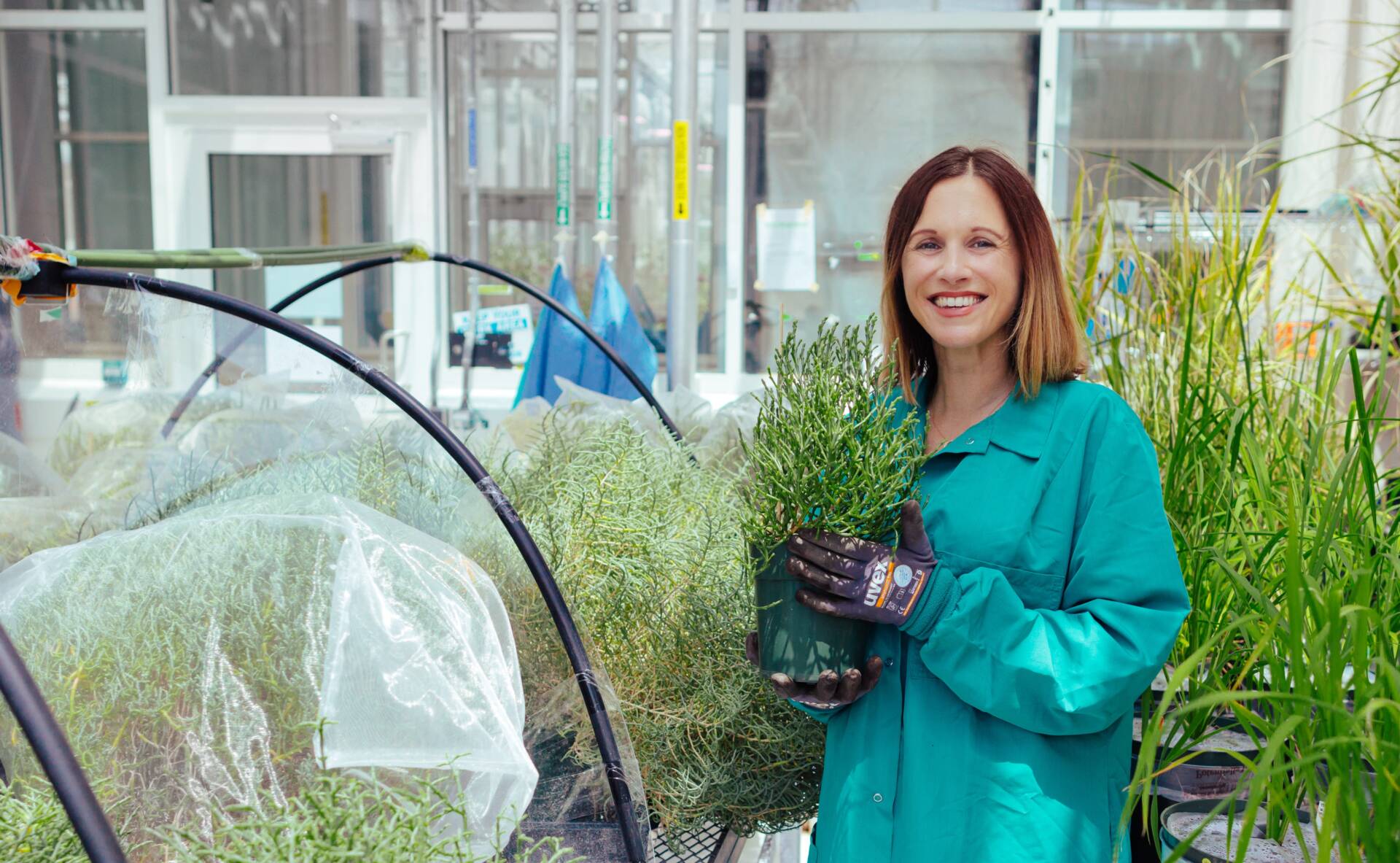Few plants have a taste for salt like Salicornia, the plant I’m holding in this photograph. Salicornia is so salt tolerant that it can grow in full seawater. If it has only fresh water, it will die.
Salt tolerance is a critical consideration for the future of agriculture. Farming in regions with low rainfall relies on deep wells for irrigation. But in many places, we extract groundwater much faster than it is renewed, and the remaining water becomes increasingly salty. In some arid areas, groundwater depletion and soil salt accumulation mean that even our most salt-tolerant crops will no longer grow there.
I work as a plant physiologist in Mark Tester’s lab, developing new crops with extreme salt tolerance. One plant we look at is quinoa, a semidomesticated pseudo-cereal crop from South America. We have a program to improve the heat tolerance and agronomic traits of this already salt-tolerant species.
“Salicornia is so salt tolerant that it can grow in full seawater”
The other plant is Salicornia, also sometimes known as sea asparagus, sea beans or samphire. I am leading a project targeting the oily seed, which is rich in nutritionally beneficial fatty acids. Today’s main oil crops, canola and soybean, require fresh water. To preserve this nonrenewable resource, we hope to develop Salicornia as an alternate crop.
The plants in the photo were collected from a great inland salt lake in Al Qassim, north west of Riyadh. Once a small lake surrounded by farms, now there is nothing but salt and Salicornia. In other places, Salicornia grows in tidal areas and gets some respite from salt at low tide. Given their constant exposure to high salinity and temperature, there is potentially something remarkable about this Saudi Salicornia species.
My mum is an avid gardener, and I think that time spent in the garden with her helped set me on this career path. Here at KAUST, I garden with my kids and we grow tomatoes, bananas and okra. They are learning just how much watering is needed to mitigate the heat stress. My husband works in Neom, one of the new smart cities being planned in Saudi Arabia, developing the water policy. It is a good family life here, and I feel like we are both having an impact in our respective areas of work.

